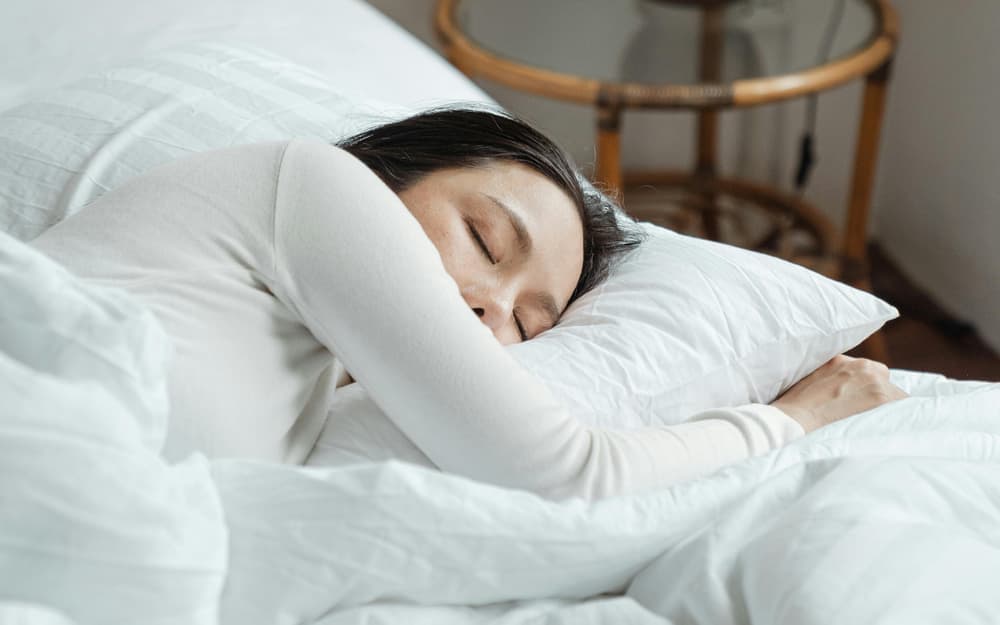7 Common Sleep Myths That Are Secretly Keeping You Tired

Sleep myths that keep you tired. Image Source: PEXELS
In today’s hustle culture, sleep is often treated like a luxury instead of a necessity. But here’s the catch, even when you think you’re doing it right, common sleep myths could be sabotaging your rest. From believing you can “catch up” on weekends to trusting that alcohol helps you sleep, misinformation about sleep has become a hidden epidemic.
Experts say these myths not only reduce the quality of your rest but also affect your mental focus, mood, and long-term health. Below, we debunk seven of the most widespread misconceptions keeping millions of people tired, even after eight hours in bed.
1. “You Can Catch Up on Sleep During the Weekend”
Many people believe sleeping in on weekends can erase a week’s worth of sleep debt, but that’s not how the body works. Research from the National Sleep Foundation shows that irregular sleep patterns disrupt your circadian rhythm, leaving you groggy even after extra hours in bed.
Consistency is key: aim for 7–9 hours of sleep each night, including weekends, to reset your natural body clock.
2. “Everyone Needs 8 Hours of Sleep”
While 8 hours is often cited as the gold standard, sleep needs vary by age, genetics, and activity levels. Some people function best with 6.5 hours, while others require up to 9. What truly matters is sleep quality, not just duration.
If you’re waking up refreshed and alert, you’re probably getting the right amount for you, even if it’s not exactly eight.
3. “A Glass of Wine Helps You Sleep Better”
Alcohol may make you drowsy initially, but it actually disrupts REM sleep, the stage essential for memory and emotional balance. Studies by Harvard Medical School reveal that alcohol fragments sleep cycles, leading to frequent wake-ups and poor rest quality.
Swap the nightcap for herbal tea or warm milk to encourage more natural relaxation.
4. “You Can Train Yourself to Sleep Less”
Some boast about thriving on 4–5 hours of sleep, but science says otherwise. Chronic sleep restriction affects reaction time, decision-making, and immune health. Even if you don’t “feel” tired, your brain’s performance and memory decline over time.
Experts stress that sleep deprivation accumulates silently, often going unnoticed until symptoms appear.
READ ALSO
7 Stressful Habits You Don’t Realize Are Hurting Your Health
10 Tips for Maintaining Healthy Posture at Work
5. “Snoring Is Harmless”
While occasional snoring may be harmless, chronic snoring can signal sleep apnea, a condition that causes breathing interruptions and oxygen loss. Left untreated, it increases the risk of heart disease, diabetes, and stroke.
If your snoring is loud or paired with gasping, it’s time to see a sleep specialist.
6. “Watching TV Helps You Fall Asleep”
Many people rely on TV or streaming before bed, but screens emit blue light that tricks your brain into staying awake. Blue light suppresses melatonin, the hormone that regulates sleep.
Try replacing screen time with calming pre-sleep rituals like reading or meditating.
7. “Lying in Bed Helps You Fall Asleep Eventually”
If you’ve been tossing and turning for over 20 minutes, staying in bed might make things worse. The brain begins to associate the bed with wakefulness and frustration, not rest.
Sleep experts recommend getting up and doing something relaxing, like stretching or deep breathing, before trying again.
Sleep isn’t just rest; it’s a form of nightly recovery for the brain and body. Debunking these myths can transform how you sleep and how you function during the day. Remember: true rest comes from routine, mindfulness, and understanding your body’s unique needs.
FAQ: What People Are Searching About Sleep Myths
Q: What are the biggest myths about sleep?
The most common myths include believing that you can catch up on sleep, that alcohol improves sleep, or that everyone needs exactly eight hours. These misconceptions harm long-term rest quality.
Q: Is it possible to catch up on lost sleep?
Not effectively. Sleeping extra on weekends doesn’t fully repair the cognitive and physical effects of chronic sleep deprivation. Regular sleep schedules are far more beneficial.
Q: Does alcohol really make you sleep better?
No. While alcohol may help you fall asleep faster, it reduces REM sleep and causes frequent awakenings, leaving you more tired the next day.
Q: How much sleep do adults actually need?
Most adults require between 7 to 9 hours of quality sleep each night. However, the exact amount can vary by individual metabolism, lifestyle, and age.
Q: Why is snoring considered dangerous?
Chronic snoring may signal sleep apnea, a disorder that causes breathing pauses during sleep. It’s linked to high blood pressure, heart disease, and fatigue.
Q: Is blue light really bad for sleep?
Yes. Blue light from screens suppresses melatonin, delaying the body’s sleep-wake cycle. Experts suggest avoiding screens an hour before bedtime.
Q: What’s the best way to fall asleep faster?
Stick to a routine, dim the lights, avoid caffeine late in the day, and keep your room cool and dark. If you can’t sleep, get up and do something relaxing instead of lying awake.
Q: Can sleep myths really affect health?
Absolutely. Misinformation about sleep can lead to chronic fatigue, poor immunity, and decreased productivity, all of which compound over time.

